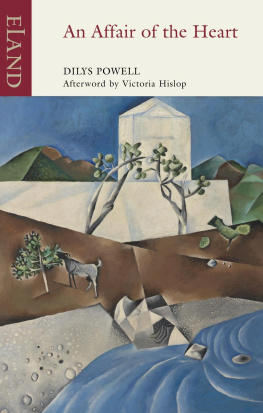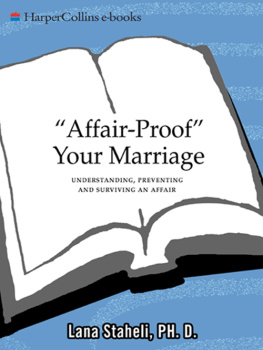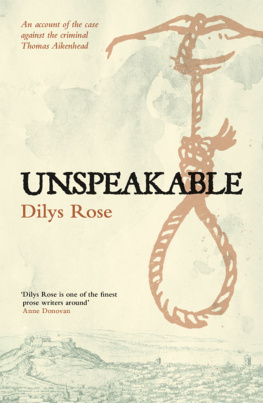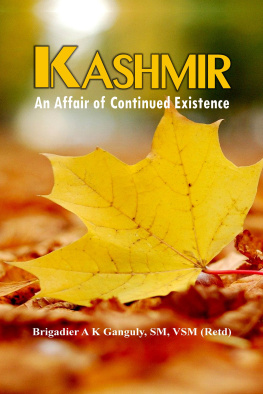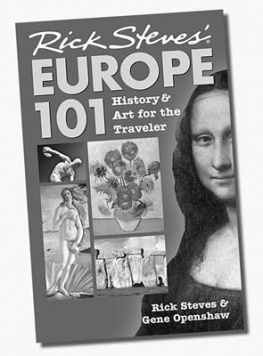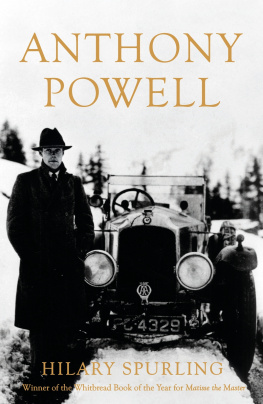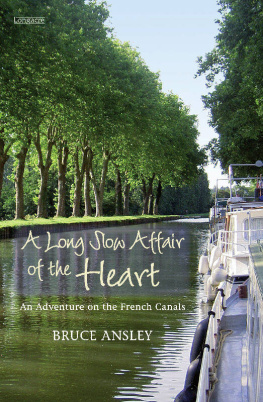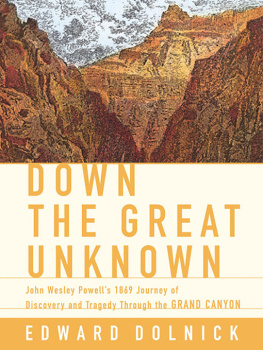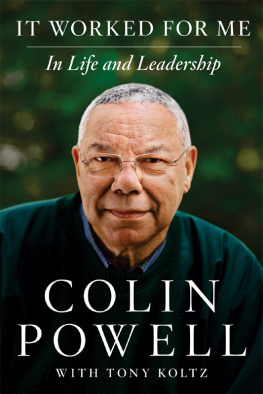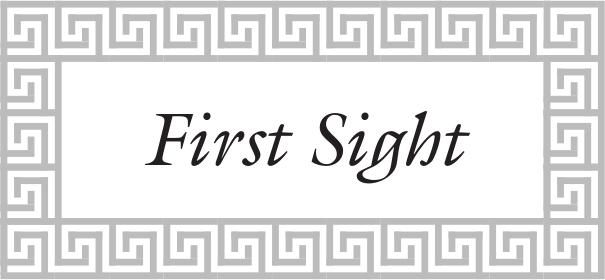I should like to thank also Mr Sinclair Hood, Director of the British School of Archaeology at Athens, and all the members of the Emporio party of 1954.
My spelling of place-names makes no pretence of consistency. With familiar places I have generally used the familiar English spelling; occasionally, with less-known ones, a transliteration more nearly approximating to the Greek original.
Some of the people in the pages which follow appeared in a book about Greece which was published during the war; to avoid confusion I have kept the disguised names which at that time I thought it best to employ. But though a few of the names may be false all the characters are real; and all the incidents are true.
N OWADAYS WHEN I look back on my acquaintance with the village I think of three episodes, or three days rather. A day in December 1945; in October 1953; in June 1954 each time I went back, life there had reached a fresh stage, and in the candid eyes of my friends I saw the changing directions of my own life. But the beginnings were years earlier, and if I am to give the flavour of the relationship I must first look further back still, to the early part of the 1930s, when the English were digging out the treasure of the temple by the lighthouse.
It was at the end of 1929 that my husband Humfry Payne, then newly appointed Director of the British School of Archaeology at Athens, searching for an ancient site to explore, first came to the place. From Corinth, if you look across the Corinthian Gulf to its northern coast, you distinguish the little town of Loutraki. A mountain leans over it. To the left of Loutraki a peninsula, separating the Corinthian from the Halcyonic Gulf, drives westward in diminishing waves of rock until at last it rears a crested headland with, at the extremity, a lighthouse. This desolate and beautiful triangle of Greece is known as Perachora, which means the country beyond. Inland, hidden by Loutrakis mountain, is a village called also Perachora.
The ancient Greeks too, looking across from Corinth, spoke of the district as the land beyond: beyond, that is, the sea. The headland, point of the triangle, was fortified in antique times, and a Heraion was set up, a sanctuary of Hera, wife of Zeus. History records a skirmish there between Spartans and Corinthians. And the place has been touched by legend as well as history. In the past, scholars have suggested (though today the theory is brushed aside) that here it was that Medea, when in Euripides play after being deserted by her husband Jason she killed her children, brought their bodies for burial.
All this was known to the learned when Humfry Payne came walking down to the lighthouse looking for potsherds and ancient walls. Yet nobody had thought the Heraion worth excavating. Remote, difficult, waterless, the promontory held off explorers. But not this one.
I must explain the system under which archaeological excavation by foreigners is carried out in Greece. A number of countries France, Italy, Germany, Britain, the United States of America have established in Athens Schools or Institutes for archaeological study or research, most of them endowed with at any rate some government support. A School may have its own official expedition, or an individual archaeologist may dig under School auspices; in either case the Government of Greece must be asked for a permit. There was an unwritten rule before the war and I dare say there is one still that no foreign country should carry out excavations at more than three places in any one year. A site, its exploration once begun, became under Greek sanction the temporary preserve of the exploring nation, which had the right to publish the results of excavation.
Thus certain ancient cities came to be thought of as, say, German hunting-ground, or French. The Germans had excavated Olympia, and the names of German scholars were always to be associated with the great sanctuary. Delphi and the island of Delos, birthplace of Apollo, were French sites. The Americans had, one might say, dug themselves in at Corinth, and were making ready, at the time of which I speak, to bring their learning, their enthusiasm and their genius for engineering to the heart of Athens, where much of the ancient city still lay hidden under the old Turkish quarter at the foot of the Acropolis. In Crete, Sir Arthur Evans, a formidable scholar-explorer from the nineteenth century who still commanded awe in the twentieth, had not merely uncovered the palace of Knossos, lair of the Minotaur, but had reconstructed a good deal of it to a height of two storeys, leaving it in the earthquake-haunted island a British liability in more ways than one.
The English had been digging for some years at Sparta. But with the advent of a new Director, the Committee of the British School decided to break fresh ground. Humfry was convinced, against the belief of earlier visitors, that there were important remains at the obscure Heraion of Perachora. He asked for a permit to dig, and in 1930 he began work.
The excavations lasted four seasons: 193033. Each year as spring uncurled the fists of winter the English arrived, a party of half a dozen or so, to pitch their tents on the headland; they stayed until mosquitoes, flies, heat and seasonal difficulties with labour drove them back to Athens. The workmen came from Perachora village, six miles away in the hills. On Saturday night they tramped home with their wages, to return at dawn on Monday. The rest of the week they camped beside the English tents, or found a lodging in the lighthouse; and for nine hours a day they hacked, dug, sifted and carted. And they found; every hour of the day they found. In many parts of Greece an archaeological expedition is a commonplace; not here, not in Perachora village. Everything was new; a golden world opened before these uncorrupted peasants, owners of a few pines, a stony field, a terrace of struggling vines. Years afterwards a lifetime afterwards, if one were to judge by what had passed between I was, as I shall later describe, a visitor at an excavation in the island of Chios. The discoveries seemed satisfying enough to me, but the Director felt that he should excuse them: You must not, he said wryly, expect the wealth of a site like Perachora, you know. And indeed I did know. I am not an archaeologist, but I have seen what it is like to search day after day and find nothing, I am aware that spectacular success is rare. The exploration of the Heraion was the chance of a lifetime.
I was not present for the 1930 season, and I did not see the first astonishing finds of bronze and ivory and pottery. But the next year and every year until the work finished I was there, an onlooker at the exhumation. Briefly, the Heraion proved to be the site of a small but well-to-do Greek town with temples and altars, marketplace and colonnade, roads, watch-towers, an elaborate system of water-storage. The foundations of a temple from the ninth century BC , of another from the eighth, of yet another from the sixth; fine architectural remains from the classical fifth and fourth centuries and the later, the so-called Hellenistic period of Greece the discovery of these alone would have been great reward. But it was the amassing, season after season, of beautiful and precious small objects, gifts offered to the goddess Hera in gratitude for favours or in entreaty for help, which brought distinction to the Perachora expedition. Little bronze statuettes of men and animals, birds and mythical creatures; ivory seals, ivory pins, little couchant animals of ivory; jewellery and scarabs; hundreds of bronze bowls, hundreds of terracotta figurines, fragments of exquisitely painted pottery to be counted not in hundreds but in hundreds of thousands only the most famous sanctuaries had yielded so much miniature treasure. That it should now be found in an unregarded corner of Greece was a kind of miracle.

